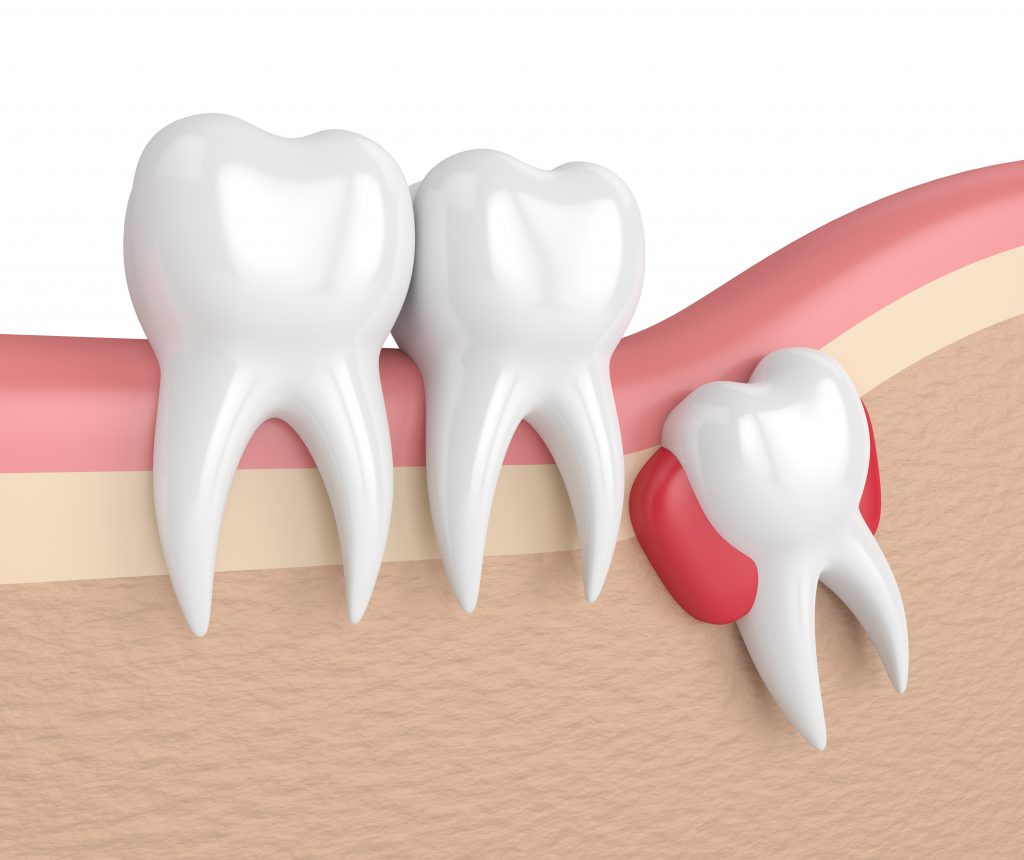
You may hear people talk about having an impacted tooth, but not feel quite sure of what that means. While they say that what you don’t know can’t hurt you, in this case, that isn’t true. Impacted teeth can affect your oral health in several ways, particularly before and after getting braces. In this blog, you’ll find out what impacted teeth are and when an orthodontist in Ripon recommends treatment. Learn more below!
What Are Impacted Teeth?
Impacted teeth are teeth that haven’t “erupted” normally through the gums. Teeth can be totally impacted, where you can’t see them at all under the gum tissue, or partially impacted, when just part of the tooth has come through.
Most commonly, the wisdom teeth (also called the third molars) become impacted because there simply isn’t enough room in the jaws to accommodate them. In many cases, it’s a good idea to have impacted wisdom teeth taken out after orthodontic treatment to prevent them from affecting the rest of the teeth.
The second most common teeth to become impacted are the upper canine teeth. Since the canines are quite important for a healthy smile and an aligned bite, an orthodontist will usually recommend treatment to help these teeth properly erupt. This is often done as part of overall orthodontic treatment.
What Are the Signs and Symptoms?
In some cases, impacted teeth don’t exhibit any symptoms, but that doesn’t mean they can’t cause problems down the road. In these cases, you may not know that you have an impacted tooth until a dentist or orthodontist takes an X-ray.
Partially impacted teeth are more likely to cause signs and symptoms because they create “flaps” or pockets of gum tissue that collect plaque and bacteria. Since these areas are so difficult to clean, a serious infection can develop.
In these cases, here are some of the signs and symptoms that can develop:
- Swollen, tender gum tissue in the area
- A bad taste in your mouth or chronic bad breath
- Pain or difficulty opening your mouth
- Discomfort when chewing
These symptoms may come and go or remain constant.
Why Do Impacted Teeth Need Treatment?
Sometimes, fully impacted wisdom teeth are simply left alone. In other cases, partially impacted wisdom teeth are at risk for causing an infection or putting pressure on the other teeth, so having them removed is usually recommended.
If someone has impacted canine teeth, they need to be treated before orthodontic treatment can continue. These teeth act as the “anchors” of the mouth, so it’s difficult to move forward with braces in Ripon until they’re in place.
The best way to determine the right course of action is a consultation with a dentist or orthodontist. After assessing your needs, they’ll make the best recommendation for your long-term oral health.
About the Author
Dr. Frances Hamman has over 25 years of experience as an orthodontist in Ripon and is a graduate of Creighton University School of Dentistry. In addition to providing outstanding orthodontic treatment for patients of all ages, she also provides thorough comprehensive care, including the evaluation of impacted teeth. If you have any other questions about your oral health, she can be reached via her website.


